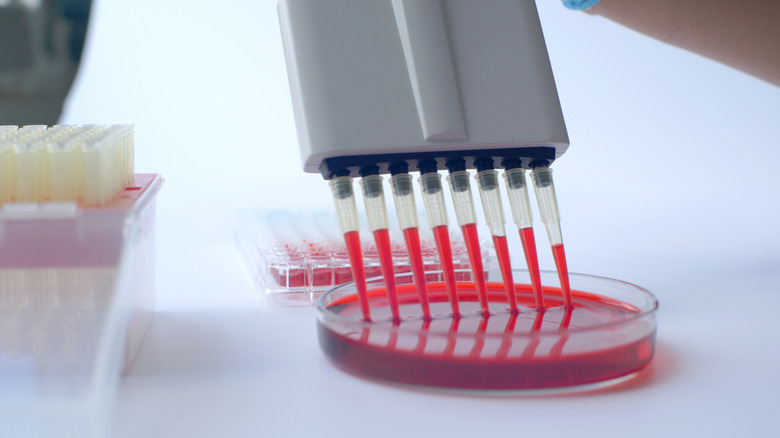You Could Be Anemic If Your Eyes Look Like This
Anemia, also known as low hemoglobin, is a health condition where you don't have enough healthy red blood cells responsible for moving oxygen to the rest of your body, according to the Mayo Clinic. A common symptom is feeling fatigued and weak. There are five different types of anemia, including iron deficiency anemia and sickle cell anemia. Anemia can range from mild to severe and can have different causes.
Per WebMD, anemia is the most common blood condition in the United States, affecting 6% of people. Those with long-term illnesses, women, and children are more likely to have anemia than anyone else. It can be genetic, and you can even be born with it. Women are more at risk for iron deficiency anemia from blood loss during menstruation and increased blood supply demand during pregnancy. Adults who have kidney disease or another chronic health condition are more likely to be anemic.
In terms of symptoms, your eyes can show a sign of anemia. Here is what to look for if you think it may be living with the condition.
Your eyes may be showing signs of anemia
You may not know your eyes can be a tell-tale sign you might have anemia. According to Fox News, all you have to do is look in the mirror. First, check your lower lash line, also known as the mucous membrane, or the water line above your lower lashes. This area has blood vessels, so if it looks pale, it means it isn't getting enough red blood cells. Other parts of your body that can look pale when you're anemic are your face, nail beds, and palms of your hands.
Additional signs of anemia are frequently feeling cold, lightheadedness, dizziness, fatigue, difficulty concentrating, constipation, and strange cravings, like wanting to eat ice or sand (via Healthline). You may also experience jaundice — a yellowing of the whites of your eyes and skin. Per Medical News Today, other symptoms are chest pain, headaches, irregular heartbeat, fast heart rate, and shortness of breath.
See your doctor if you have these symptoms. They'll do a blood test to determine if you are anemic by testing your iron, vitamin B-12, and folic acid levels. If your anemia is severe, you may need an erythropoietin injection to boost your red blood cell count.

